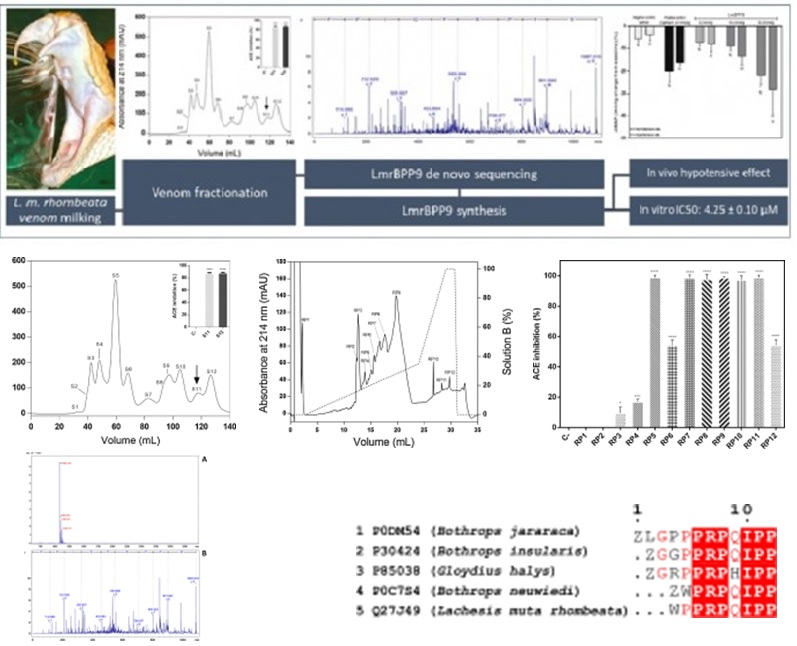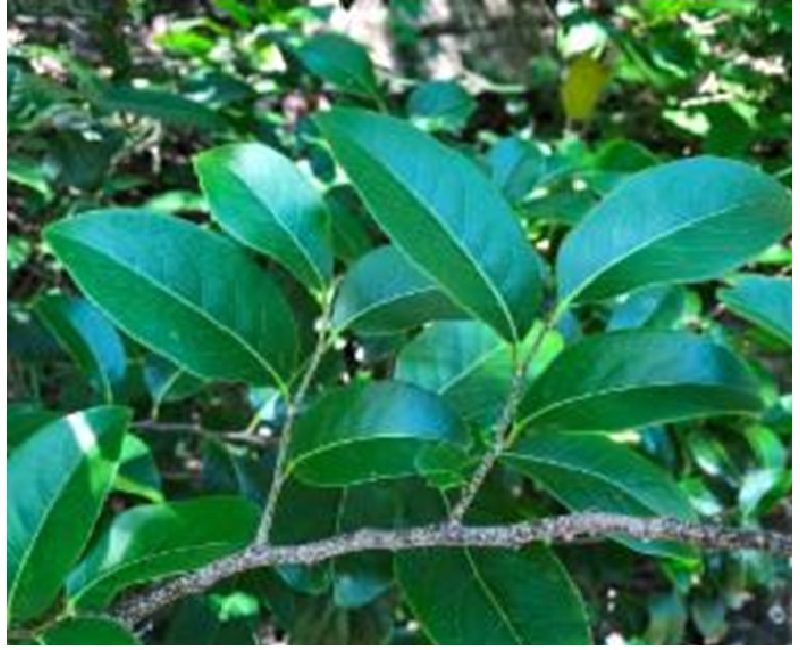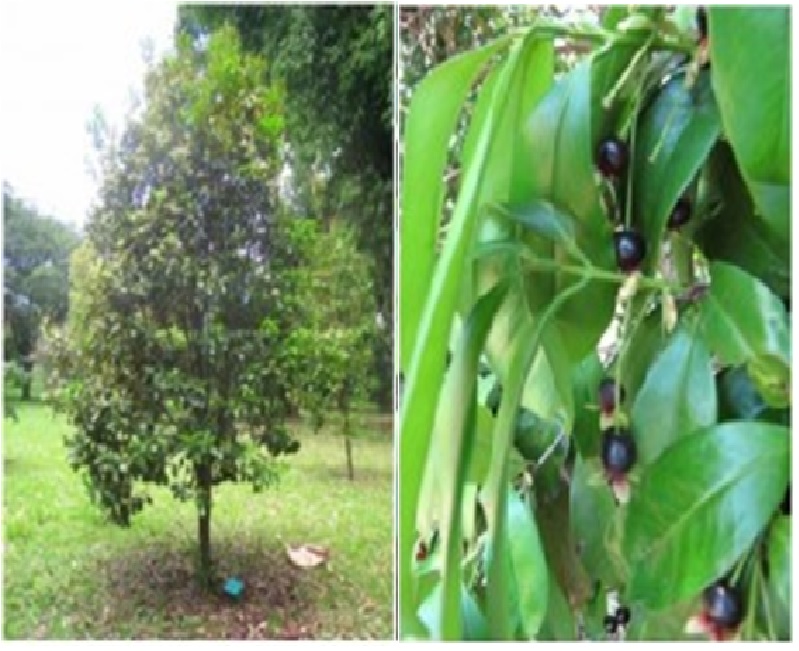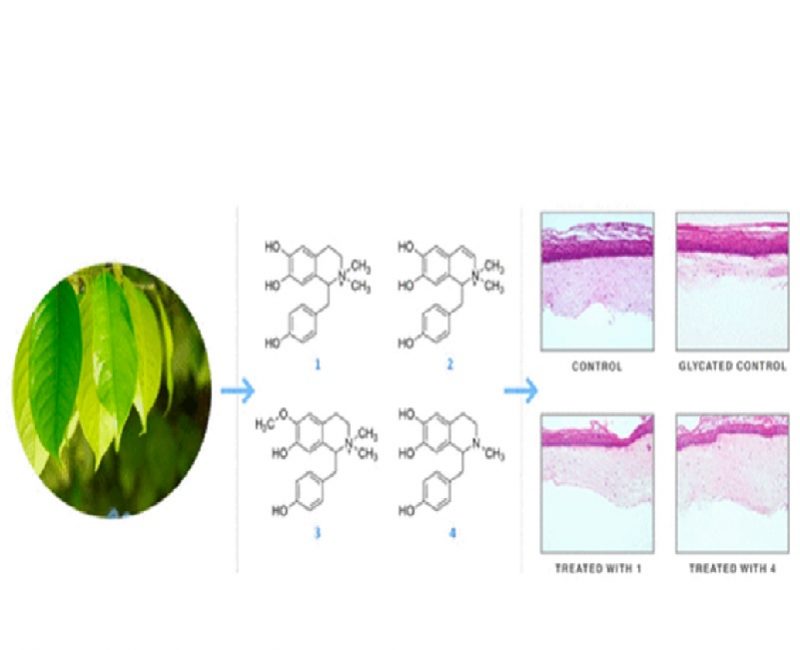
Authors:
Pinheiro-Junior, Ernesto Lopes 1 ; Boldrini-Franca, Johara 1 ; Pires de Campos Araujo, Luciana Mattoso 1 ; Santos-Filho, Norival Alves 2 ; Bendhack, Lusiane Maria 1 ; Cilli, Eduardo Maffud 2 ; Arantes, Eliane Candiani 1
Abstract:
Bradykinin-potentiating peptides (BPPs) are an important group of toxins present in Lachesis muta rhombeata venom. They act directly at renin-angiotensin-aldosterone system, through the inhibition of angiotensin-converting enzyme (ACE). This action may contribute to the hypotensive shock observed during the envenoming by this species. Thus, the main goal of this study was the solid-phase synthesis of a BPP found in L. m. rhombeata venom and its in vitro and in vivo characterization in relation to ACE inhibition and hypotensive activity, respectively. The LmrBPP9 peptide was synthesized using an automated solid-phase peptide synthesizer and purified by reversed-phase fast protein liquid chromatography (FPLC). The in vitro IC50 of the synthetic peptide is 4.25 ± 0.10 μM, showing a great capacity of ACE inhibition. The in vivo studies showed that LmrBPP9 induces blood pressure reduction, both in normotensive and hypertensive rats, being more pronounced in the last ones. These results agree with the in vitro results, showing that the synthetic peptide LmrBPP9 is a potential molecule to the development of a new antihypertensive drug.
1 University of Sao Paulo – USP, School of Pharmaceutical Sciences of Ribeirão Preto FCFRP, Ribeirão Preto, São Paulo – Brazil
2 São Paulo State University – UNESP, Institute of Chemistry, Araraquara, São Paulo – Brazil
Link to full article: https://www.sciencedirect.com/science/article/pii/S0196978118300238?via%3Dihub







